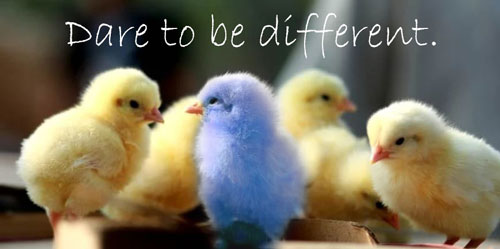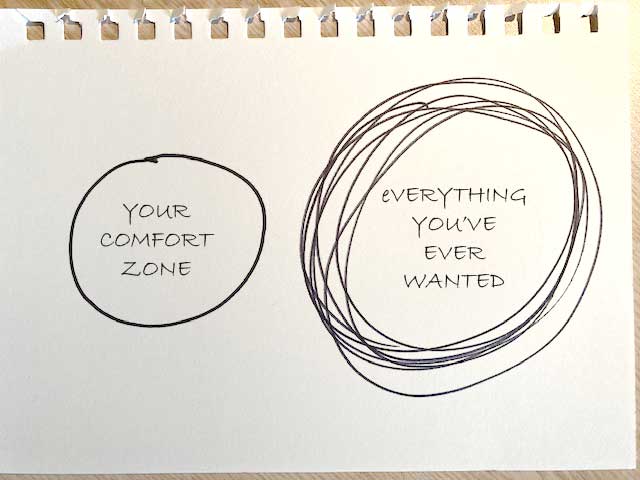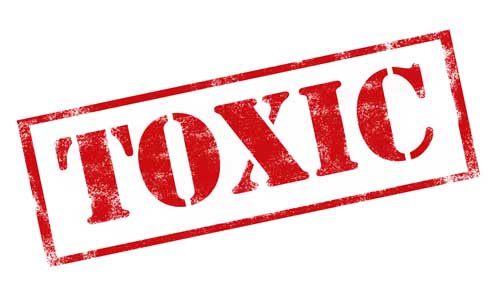
Do you ever wonder if you’re the toxic one? Its Time to Get Real With Yourself.
Are you the toxic one in the relationship? It’s time to get real with yourself. Many people in toxic relationships with controlling partners find themselves wondering if the manipulator is right about them. “Am I the toxic one?” Maybe I am the ‘sick one’, they think. There are almost always signs to prove this to be so.
It would be nearly impossible to be in a toxic relationship for very long without becoming reactive. Do you ever find that you’re more angry, sarcastic, or annoyed than you would like to be? Or more than you might have been in the past? Oftentimes, the receivers of toxicity find themselves wondering if they are the ones that drove the relationship apart. You may have noticed others backing away from you. Maybe you’re not as connected to people as you used to be. This is not the case for everyone, but sometimes after being in a toxic relationship for a long time, we form a sort of shield of protection that may have served its purpose during the times needed but now it seems to do more harm than good. The shield can be in the form of a defensive stance or the opposite; over-niceness, over-pleasing and over-sharing.
Empathetic and sensitive people begin to learn ways to protect themselves.
After years of mistreatment, empathetic people eventually learn defense tactics. In fact, toxic people are typically drawn to people with empathy because they lack defense mechanisms to begin with. Being empathetic means having sensitivity, which is a good thing, but it needs to be protected. It is not an easy journey that you have been through and you have a difficult journey ahead of you. But, in order to heal, you have to get real with who you are. That means being aware of some of the unwanted defenses that may have formed. You have to accept all of you and understand the things that you have been through, even if that means you picked up some toxic behaviors.
Seeking toxic relationship advice is often a clear sign that you are someone looking for genuine help and are willing to examine difficult situations. There will come a time when you will need to go beyond the first layer of your exterior protective shell. What others might be telling you about yourself is only their singular opinion. Look beyond the outer image you have carefully constructed and closely examine underneath the hood of your reinforced surface. It is possible that you have developed a shield between your emotions and the outside world for your own emotional protection. It is also possible that this shield, which usually presents itself as defensiveness, sarcasm, anger or indifference appears less appealing to others than you would wish. It can have the potential to push people away. But you need the support of others, so pushing them away is the opposite of what you want to do.
The shield against toxic people may be causing you pain.

There is a direct link between your protective shield and the hidden emotions that it has tried to protect. You probably have a great deal of empathy, which means that your sensory system is strong. This can be both a blessing and a curse depending on your relationship. Having robust sensitivity is excellent for intuition, creativity, and experiencing the most out of life. However, someone with lower sensitivity, or worse, a controller, appears to be annoyed by emotions. Any emotions from an empath can lead to negative consequences because controllers do not like emotions. Emotions represent independence, something separate and out of the controller’s reach. They are inconvenient to the manipulator so he/she will do anything to shut them down, including using harsh control tactics. Depending on the ‘conditioning’ you received, having or expressing emotions might make you feel vulnerable, even ashamed.
So how do you break down this protective shield and heal?
It is time to call on your faith. Take a look at your spiritual belief system to help carry you through this process. Look at your lifelong structured belief system and examine your fears, and your beliefs about yourself.. Do you believe that you deserve to be loved or do you believe that you deserve to be mistreated? Do you believe that you deserve to be forgiven? Can you forgive others?
After a long experience of mistreatment, manipulation and abuse, we become swayed into thinking that we are unlovable. We have often believed that we were misunderstood, untrustworthy and unacceptable. I used to believe that I had to work hard for love and attention, which was almost always unattainable. I thought I had to be charming, accomplished, fun, witty, beautiful, sexy, smart, strong, etc. to deserve love. Of course this was impossible to achieve, so I therefore constantly felt unlovable. Simply being myself, asking for love without manufacturing certain characteristic traits was not an option. It was very difficult to just be me without the enhanced and exaggerated superficial qualities that I thought were required.
This type of thinking makes it hard to connect with people at any real level, which can be very lonely. As entertaining as I might have thought I was, there was nobody there for me in times of emotional needs. I did not trust people to accept the genuine me, which made me appear untrustworthy to others. I felt very little compassion for myself because I knew the qualities that I showed to others were not real.
Assembling that protective shield, always trying to be attractive, constantly coming up with something witty to say, trying to appear knowledgeable, or indifferent, was hard work. How was I to feel compassion toward my real self? I felt vulnerable and boring and found interest in things that nobody else did. I had emotions that were not being truly expressed and experiences that were not being truly experienced. I knew deep down that what I presented to others was different than how I actually felt. If I could not feel compassion toward myself, how could I feel compassion toward others?
Build healthy boundaries.
Through gentle and compassionate therapy, I slowly started allowing myself to see some of the defensive traits that I had unconsciously developed to protect myself. These were the traits that were keeping me emotionally isolated. I had to trust that I would be okay without my armor. It is okay to just be me. I was not even sure what that meant at first or who I was without all the razzle dazzle. This can be terrifying to someone who consistently received negative treatment for any form of authenticity, independent thinking, or emotional expression. Letting go of the shield and allowing myself to be vulnerable has been a lifelong journey, which takes daily maintenance. But real connection cannot happen through self-fabricated and superficial qualities. Connection only happens through a genuine heart, and a genuine heart is vulnerable and exposed.
Get real to truly connect with others.
Recognizing your defenses, breaking them down and letting them go is the only way to let the world in, connect with others and live the life you were meant to live.This means being emotionally exposed, which is scary and difficult. Your journey will be long and rocky, but at the same time beautiful and full of real, authentic experiences that only you can explore. It is much easier to block our feelings, put up the exterior armor, and not care. Afterall, your feelings have been shamed, ridiculed, and manipulated. They tended to get in the way, causing more harm than good. But the problem is, when you block uncomfortable feelings such as sadness or fear, you also block the positive feelings of joy and love. It is difficult to formulate a sense of wonder, feel inspired, passionate or energized without connecting to even your own feelings.
Usually your greatest strengths are connected to your most shameful weaknesses. Figure out what those are by allowing yourself to feel your emotions. Identify and call out by name the feelings that you tend to avoid the most. What are you feeling underneath the anger or indifference? Think about when someone promises something and then lets you down. There might be a whole slew of emotions that could be hard to identify without thoughtful attention. You might be feeling anger or indifference as a protective guard against the other more painful emotions such as disappointment, sadness, or even rejection. Name those feelings and sit with them for a little while.
You have to be willing to stay there in the deep, dark scary well of emotions long enough to accept that these are what you have been avoiding. It might take some time because the protective survival part of your brain will want to shove these uncomfortable feelings far away from you. To bring them out try writing about them. If that doesn’t work draw, paint, or sing them, anything to allow them to be experienced and expressed. It is only here, in the bottom of the emotional well, deep in the darkness of loneliness and fear that your heart begins to open. This is where healing takes place.
In the depths of this deep, dark emotional well, the past will present itself in the most haunting ways.
You might feel resounding regrets after wasting so much of your precious time with someone toxic, or maybe you will mourn the past. You may recognize parts of yourself that you don’t like and don’t want to see. Notice if you feel sorry for yourself. Allow that for only a short period of time, setting a time limit on how long you will stay on your pity pot. Feelings of shame and vulnerability will likely well up. Be still and patient with these difficult, and painful feelings. Experience the power of their ability to transform you.
A new sense of wonder will rise in you as the negative feelings pass through you. Let them shape you and heal you. The hard, scary emotions will lose their power over you and become small and insignificant. Other more powerful feelings will take their place, feelings of optimism, joy and love. You will discover a feeling of true connection to others, even in their flawed and imperfect humanness
The qualities that you were trying to manufacture are already there and have always been part of you.

Without the barricade and filter of your shield these qualities will have a chance to shine on their own, in their full, glorious intended purpose. Enjoy your strengths and honor your weaknesses. Your weaknesses are what shape and give rise to your best qualities. You are a force of nature and a full expression of your soul when you are your most authentic self. Some of the external impacts will require your defenses, such as when someone is trying to take advantage of you or violates your boundaries.
Trust that you have natural defenses that will automatically activate when needed. You do not need to withdraw or put up a front to protect your sense of self. That will only serve to shut others out. You can trust that you were created to be exactly as you are. This is where you need to rely on your faith. It is okay to let go of your sense of control and trust that you are enough. All of your desires are in you for a reason. If you desire to be a strong, witty, intelligent person, chances are that is because that is who you are. Pay attention to the qualities that you admire. Those are the reflections of your soul.
Be real, stay real.
Maintaining the state of real connection and living to your best life to your fullest potential requires daily maintenance. You will need to ground yourself regularly. Continue to break down the defensive shield over and over again, and be vulnerable. There will always be others who are fighting their own battles and will try to violate your boundaries in some way or another. Tune into them instead of away from them, understand their pain and foster a sense of compassion.
You have to realize that you are not in control and do not need to be in control. Trust your faith in something greater than you. None of this is easy. Our tendency is to block out pain and the brain has a tricky way of hiding it from us. The more we become aware of, express and accept the difficult feelings like shame, fear, sadness and pain, the less likely you will be to implode. Imploding turns those feelings against yourself, which can erupt into outbursts. Ultimately being real brings real joy, pleasure, true connections and fulfillment.







